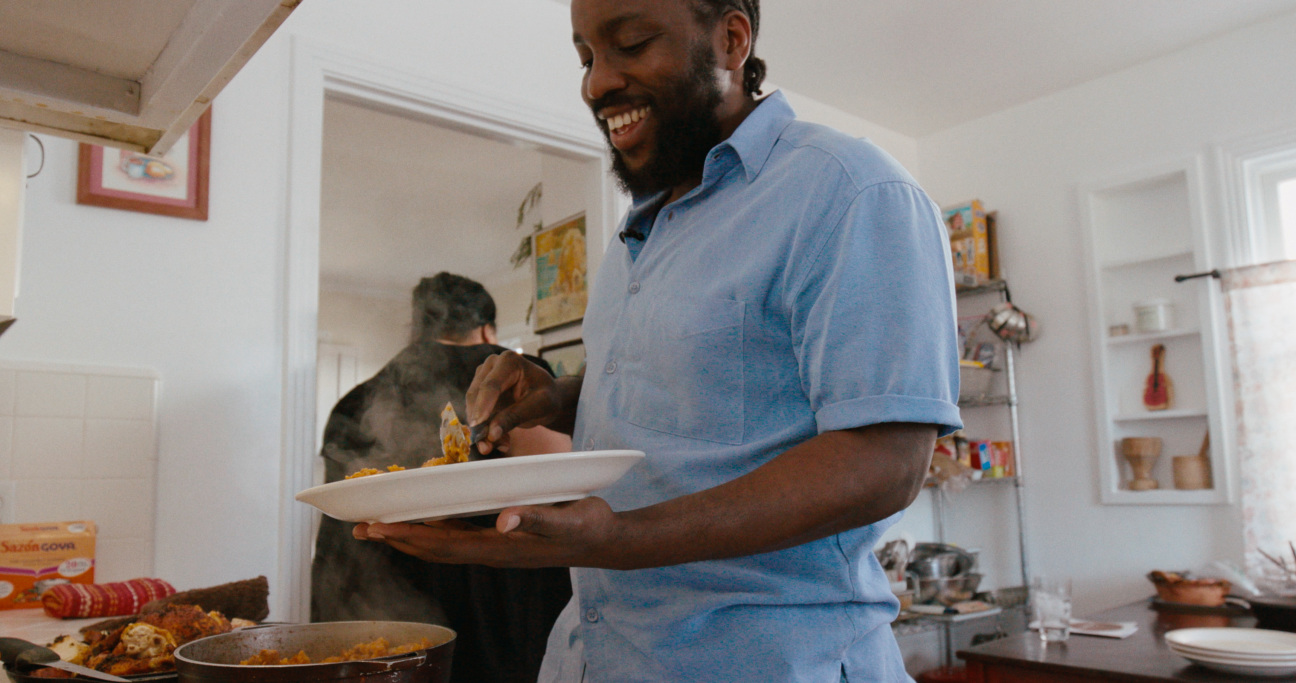
Since arriving in the United States as a teenager, Tunde Wey has been studying the forces that brought him from Lagos to Detroit and the ways in which such dynamics determine everything from where we live to what we eat. A chef by training, Wey's practice is rooted in social experiments. On more than one occasion, he’s charged different prices for different demographics of people—once to the tune of a $1,000 difference.
He’s now in the process of launching an investment fund focused on communities in Detroit and Cincinnati and making a documentary series that focuses on the effects of neoliberalism on food production and consumption. In between it all, he sat down with CULTURED to talk about the cost of money, the place of the first person in the food world, and his 2020 viral essay about letting the restaurant industry fail.
Where are you, and what's in your system?
I've had oats and a banana. And water! I'm in Oakland, California right now.
Price has been a focal point of your work. What has kept you coming back to it as a lens through which to read the food world?
I think of price like an economic program, and where there are programs in our lives, we are called to participate in them and their systems. How we can maneuver this economic system is maybe the second most paramount question for me. A lot of how we think about economics, or how we think about the economy, is by thinking about the cost of things. How much are we paying for something? How much are we saving? How much do we have? I think it's an easy lever to pull and when you pull it, it helps illuminate other parts of our economic system.
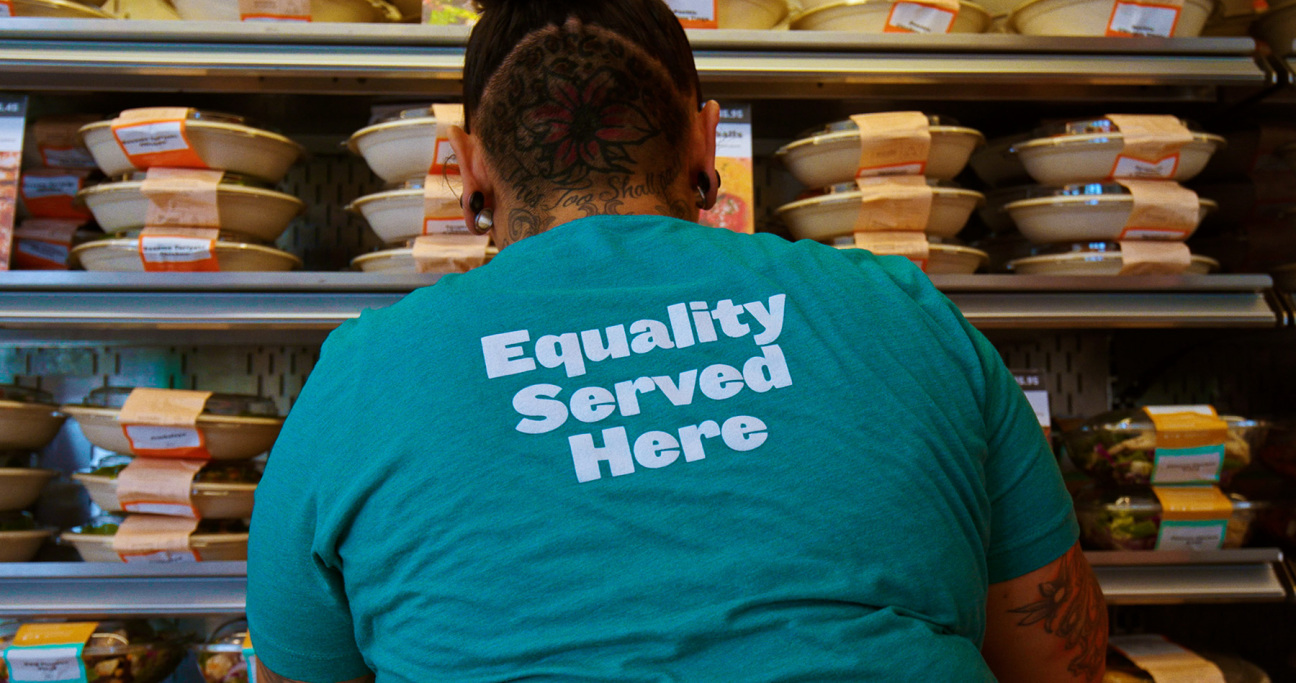
What prices are you paying attention to today?
I'm thinking about things like the price of health care. But that's not as strong of a concern to me as the price of interest rates. What’s the cost of money? I'm learning about that right now. If you work in finance, the cost of money is paramount. Money has a cost, and that cost is inflation plus expected return. The cost of money is the cost of U.S. treasury bills, short-term bills. I think it's called the risk-free rate. If you put your money somewhere, it’s the least amount you could make. I'm thinking about what that cost means and how that cost influences everything, including the cost of eggs.
In 2020, you published an essay that went viral, “Don't Bail Out The Restaurant Industry,” unpacking the culinary landscape and its many flaws and how Covid impacted it. Four years out, I'm wondering how you see that essay. Do you still think the restaurant industry is not worth saving?
That essay was supposed to be hyperbolic, but let’s also remember the time. Remember when people were amazed that dolphins were happy during the pandemic? And there was that big hedge fund guy who went on MSNBC and was crying; his voice was shaking on national television. Which is all to say that everybody was acting out of character. Saying let the restaurant industry die wasn't outlandish—it could have died in that time. Nobody had a path forward. But I was also saying in the essay that probably everything is going to return to normal. I was being hyperbolic because the restaurant industry needs to change. The essay was more a critique of capitalism than a critique of restaurants. Restaurants were just an opportunity to make that critique. I was speaking to the idea that we have over-invested in private consumption, whether that's in restaurants or cars or in homeownership, and it's time for us to invest differently. Invest in the welfare system. Shift the sort of investments that we're making. That's what I was trying to say.
Earlier this year, you were the first chef to be an artist-in-residence at the Taft of Museum of Art in Cincinnati. How did that experience stretch your artistic and culinary practices?
I spent a lot of time explaining to people why I wasn’t cooking. Sometimes I lead with food, and sometimes I find other things to talk about. Sometimes the food doesn't serve any purpose but to bring people to the table, if there's a table involved. So, back to the Taft, to be a chef who doesn't cook—it felt great! They treated me really well. I think of my work differently depending on who I'm talking to. I'm a conceptual artist or I'm a social practice artist or…. It depends on what is going on.
What were you thinking about at the Taft, if not about cooking food?
Part of the residency is going to schools and universities in the area and talking about your work. I loved it because I had the opportunity to meet all of these different people in the community. I gave a talk to an insurance company on their lunch break and then I went to an art school. All I was talking about, really, was our economic program and the system that exists and how that impacts working-class folks and the distribution of wealth and resources and the sort of extractive mechanisms that create and transfer wealth. I was talking to everybody from middle school students to art students to insurance company employees.
I want to talk about Since the Time of John the Baptist, the spirit you produce, which is inspired by a traditional West African spirit, but is made in New York with corn instead of palm. It is priced at $127.95 for a bottle, which is based on what it would cost for every adult of drinking age in the United States to collectively pay off Nigeria’s external debt (though discounts are available based on credit scores). Can you tell me a little bit about the genesis for that project, and why it made sense to make a product that was alcoholic?
Because I enjoy drinking. I was in Nigeria working on a documentary and some folks offered us some Ògógóró, which is their native gin, and I loved it. I didn’t have the impulse to make a product that was tied to any sort of reparative social agenda. It was just like, I love this shit. I started talking to Mark Byrne, who owns a liquor company, and he started helping me out and connected me to the distillery in New York.
That's how the operations part began. Then, the thematic part of the project evolved naturally. I'm Nigerian. I hadn’t been home in 20 years, and then I started going back home every year and spending six months there. All of the things that I've been working on and talking about in terms of disparity and the global economic system are things that have been in me, even before I went back to Nigeria, but being there again made me ever more ready and insistent on talking about these things. Talking about labor and its exploitation and talking about global trade and the U.S. dollar… It was like being baptized again, just by being there.
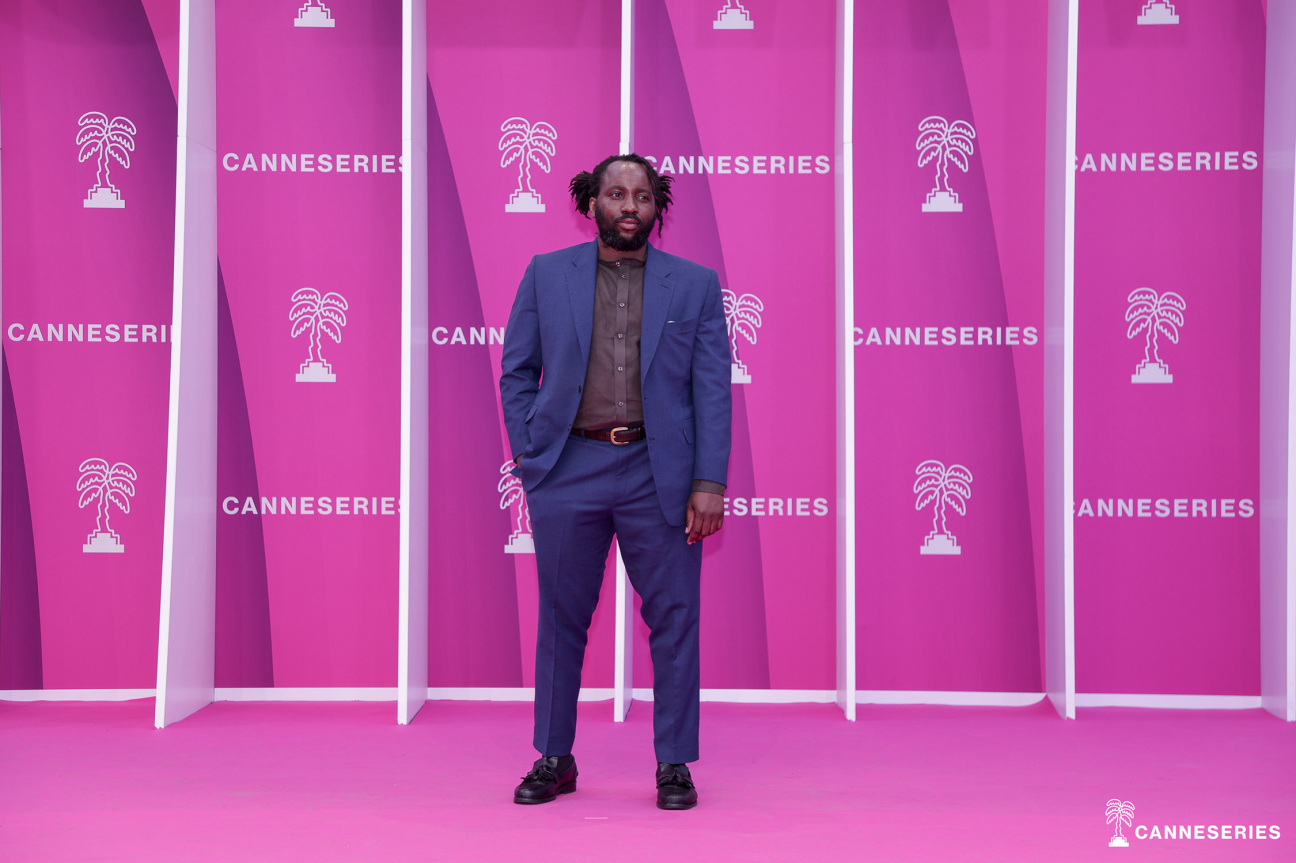
I’d love to also talk about Hard To Swallow, your documentary series which premiered at Cannes this April. You’ve been working on it for five years. What's its future?
We're still working on it right now actually. We premiered it at Cannes Series, then we had our North American premiere in Denver at another festival. Through Cannes, we're exploring distribution with companies in Europe and one in Canada.
Initially, I imagined that the project would take us on this global tour and we would talk about the effects of neoliberalism on food production and consumption, using race as a way to get into that conversation. I really wanted to show that the ways in which we can transform the system have to be through reorienting how we consume and how we produce; basically, the material reality of folks. A lot of my work has been around identity politics and a lot of the conversation around identity politics has been about the disparity between these ascriptive identities. My film partner and I were hoping to show this all through the film and to draw some conclusions. However, it’s still evolving. We're editing as we speak.
Hard To Swallow follows you as its protagonist, which makes me wonder how you grapple with the first person in the food world.
I'm very exposed, and I have been for a lot of my career without even realizing it. I've also used protagonists in my written work. I've called people out, but in a way where I was thinking of them as narrative devices and not necessarily as individuals. The reality of storytelling is that it is imperfect. You have to tell a story from a particular lens or angle—this is how stories have been told forever. That has consequences, and the biggest consequence is this feeling of being overly exposed and vulnerable. So, how do I think of the first person? I think of it as anxiety, because that's what I'm experiencing.
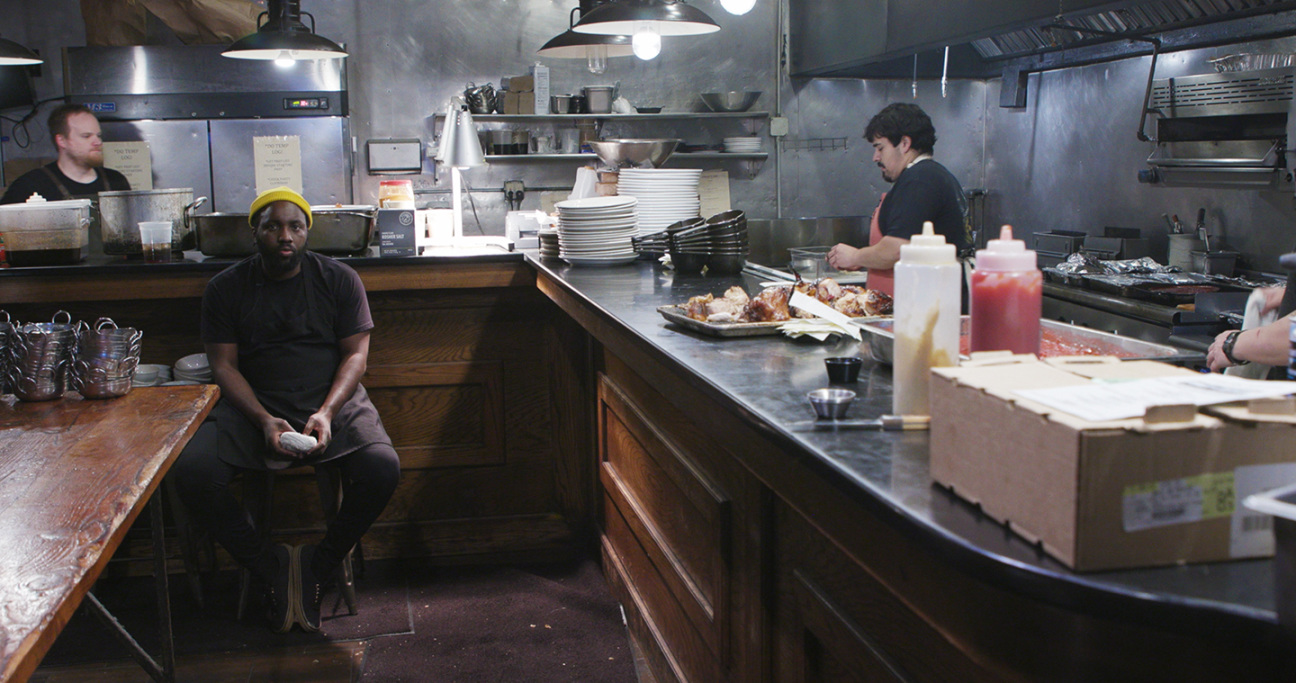
What do you want to see more of and less of in the food world today?
Not to hype myself up, but I wish there was more of the kind of work that I’m doing. I would probably be a hater if somebody else actually did it, but I think it would be really interesting to see more people think about food spaces and food differently. I don’t mean like, how do I make a pizza not like a pizza. I'm not interested in intellectualizing food. I'm talking about anthropological, social, and political perspectives on food spaces. That's one thing that I think is missing and will probably be missing forever because it's not as interesting to other people.
What's next?
I'm starting a year-long fellowship, so that will feel good just to be in one place for a year. The fellowship is called the LOEB Fellowship, which I was really glad to get. It’s at the Harvard Graduate School of Design. You get to audit classes and meet folks in the cohort who are also thinking about the built environment and address certain structural disparities. I'm super excited.
I'm also working on an investment fund. I've been doing that for the last six months to a year, just building that out. The investment fund is called No Cap. A lot of my work is thinking about the economic system. I want to understand that more so I'm starting a fund and learning about microeconomics. The fund is hyperlocal. I'm doing this work specifically in Detroit and Cincinnati. To me, that is part of my practice. Starting a fund is not separate from starting Hot Chicken Shit or doing dinners or writing. It’s all part of my artistic practice, my social practice.

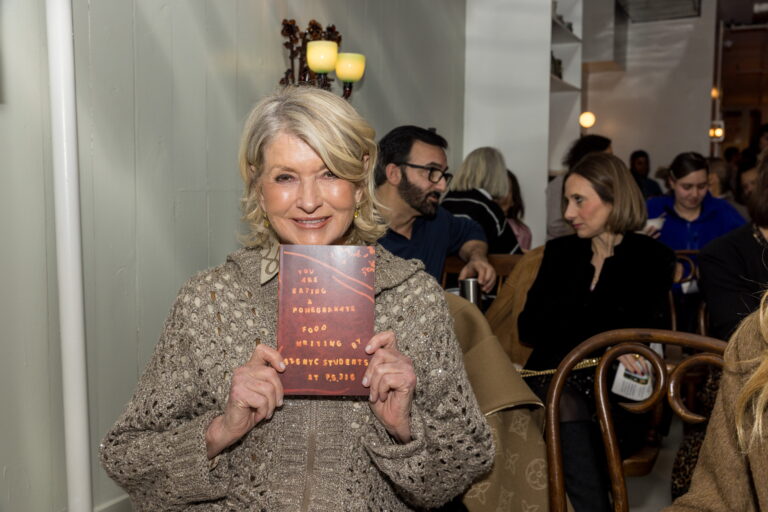
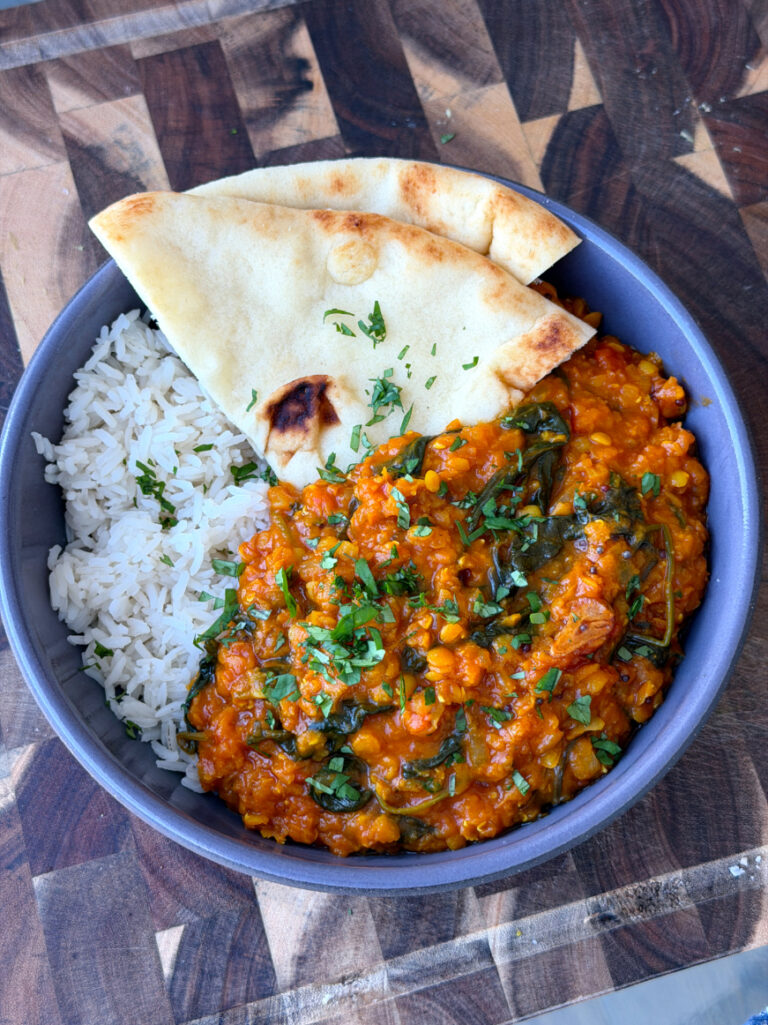
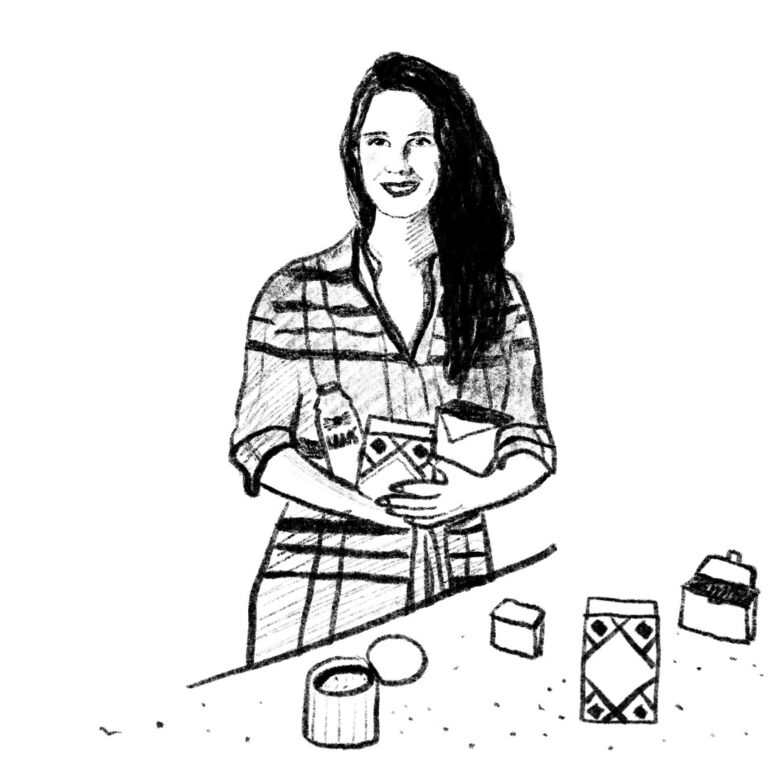
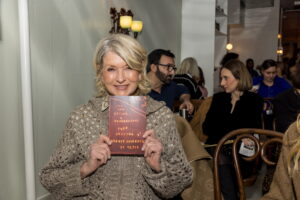
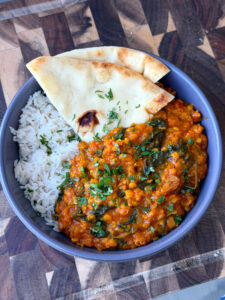
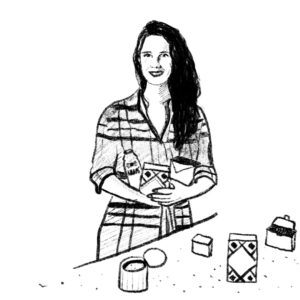



 in your life?
in your life?

